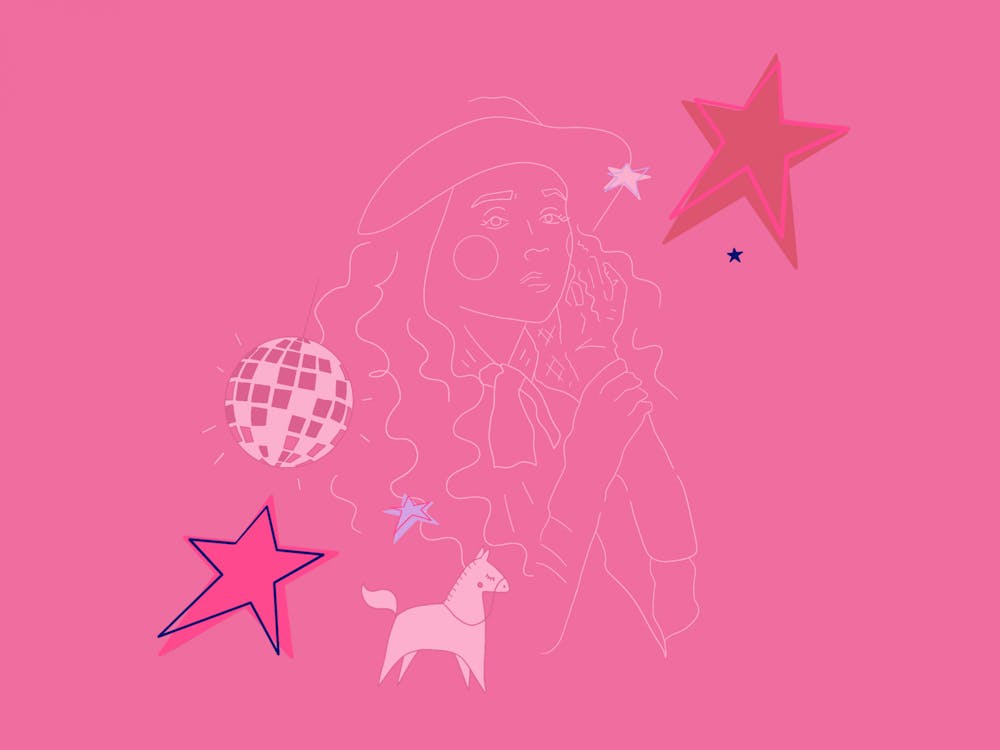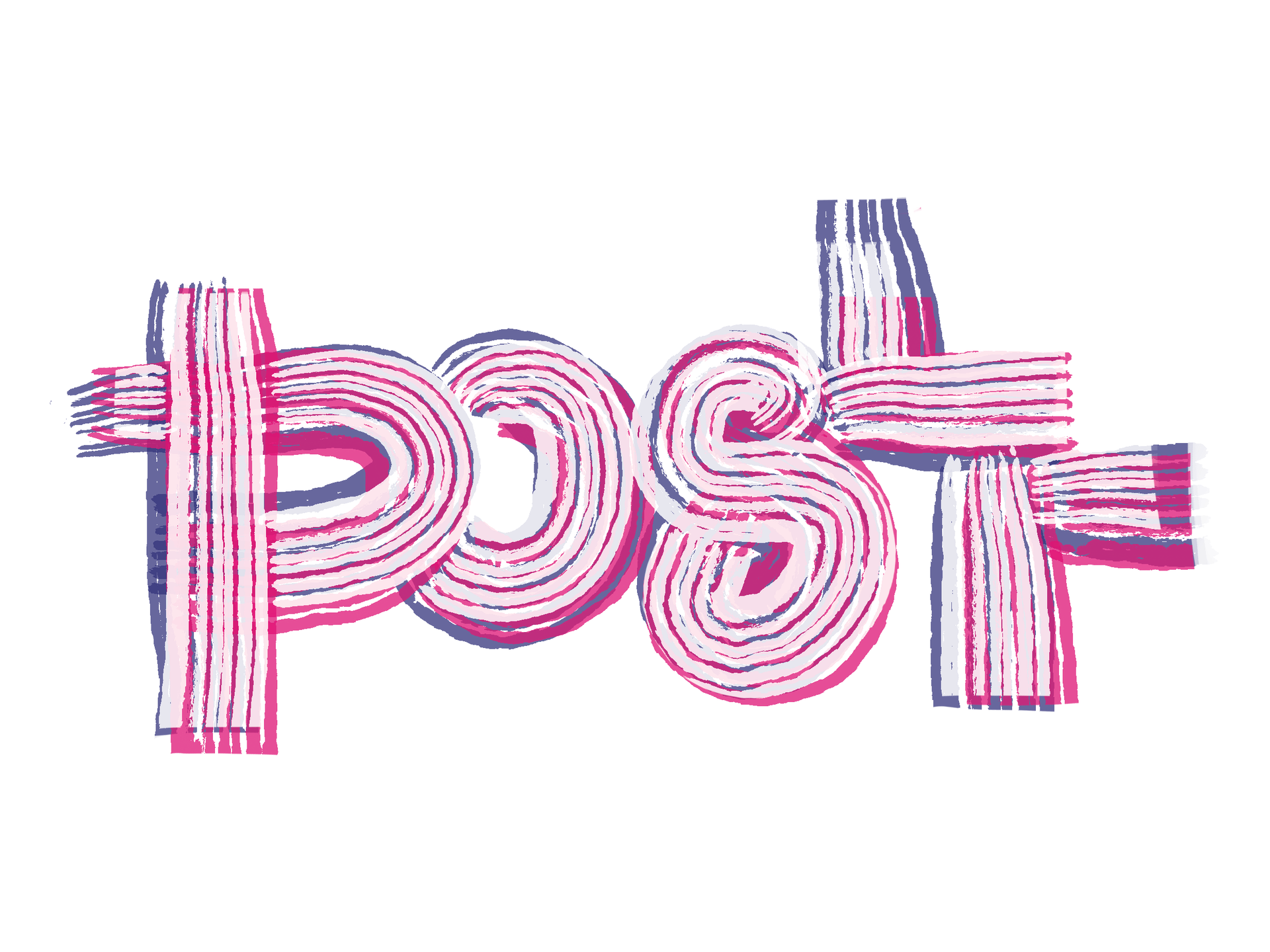I’m on the car ride home with my best friends. We’re piled in, with five in the middle seat and two curled up in the trunk. Don’t tell my mom! The sun roof is open, the windows are down, and the velvety summer air is funneling through our hair, blonde and brown and black waves weaving into each other. I can feel Isla’s hair fluttering on my ears, and her arms are squeezed next to mine. In that moment, I’m reminded of the many levels of connection she and I are making—physical, emotional, and something that feels almost spiritual. We’re driving down windy roads, and we’re practically levitating, we’re so full of glee. This is the kind of moment I will remember forever. It’s inexplicable, really. The depth of friendship created by young women in their early 20s is a force to be reckoned with.
Ella makes a left turn, onto the street we’ve driven down a million times, and the song changes. A beautiful piano scale begins to play, and seconds later, I hear the voice of teenage girlhood in Chappell Roan’s rich, haunting cadence.
“I know you wanted me to stay, but I can’t ignore the crazy visions of me in L.A.”
It’s as if time stops. We all freeze. No one’s singing, or laughing anymore.
“Who is this? What song is this?” someone whispers.
“Chappelle Roan, ‘Pink Pony Club,’” Ella whispers back. “I just found the song this morning on Spotify.”
Ella makes a right, and we’re by the beach now. There is so much love flowing through this vehicle. The darkness is so thick, but the moon is so bright that I can see the magnitude of life’s possibilities in front of me and all of a sudden Roan is belting “God, what have you done! / You’re a pink pony girl, / and you dance at the club/ Oh mama.”
The synth pulses. The electric guitar wails, glorious. Roan sings, and we sit, in silence, as the wind passes through the windows and the houses in our small suburban town pass by in a blur. I’m in the middle seat, feeling the allure of the siren-esque voice I hear. Amber’s hand is out the window, floating in the warm breeze. Isla is basking in the sheer sonic beauty blasting through the car speakers. We’re afraid to break the magic spell Roan has cast on us, but finally, and regretfully, the song ends.
“Who the hell is Chappel Roan?”
“Why have I not heard of her?”
“That was incredible.”
Play it again.
And so, we do another loop around the block. Roan’s song starts all over again, and I’m instantly giddy once more.
What is it about Chappell Roan that makes her music so emblematic of adolescence, of young adulthood? Roan, a 25 year old queer woman from Missouri, creates music for dreamers, lovers, and most of all, feelers. Her music conveys a depth of emotion that some might say is mature beyond her years. It seems to me, however, that only a 25 year old woman could write both a song like “Casual,”—a pulsing, heartbreaking ballad—and a song like “Femininominon,” a cheeky wink at camp culture and a perfect example of self-referential pop.
As a college student, and as a young woman who has been through her fair share of longing, of heartbreak, and of many, many identity crises, Roan’s music feels like a secret we are in on together, one only accessible to those who care to listen and learn and grow. I listened to “Casual” this summer while stuck in the liminal space of a situationship, to “California” when I was so homesick fall semester I thought I would burst, and to “Pink Pony Club” every time I have doubted myself or my dreams for life post-college. An introduction to Chappel Roan, in my opinion, should start with “Pink Pony Club”—but it shouldn’t stop there. Each one of Roan’s songs has healed a part of my yearning, aching 21-year-old heart in a different way. From her new single, “Kaleidoscope,” to my all time favorite, “Naked in Manhattan,” Roan’s music is the bright pink, camp-ified, sequined chicken soup for the soul.
The magic in Roan’s music lies in her shameless identification as a pop artist: a pop artist for queer people, for people of marginalized genders, and for anyone—regardless of their identity—who has ever wanted to dance through a broken heart. Growing up supporting the music of artists like One Direction, Taylor Swift, and Troye Sivan, for example, I was always made to feel embarrassed for liking the same music every other young girl liked, too. As I’ve gotten older, I’ve realized that liking the same music as young girls is a matter of pride, not something to be ashamed of. Roan validates the emotional depth of teenage girlhood, of what it means to grow up, while also legitimizing the wisdom of her young fan base. In describing her music as “dark pop with ballad undertones,” and in addressing the positionality of her audience as tastemakers, as shapers of music, culture, and trends, Chapplle is giving a much deserved kudos to the demographic of teenage girls. Her music proudly sees her fans for who they are.
Roan embraces her identity as a pop icon, citing some of her inspirations as The Bratz and Hannah Montana, and in the process, she has developed a wildly devoted fan base. From neon pink cowboy hats to bedazzled jumpsuits, Roan’s do-it-yourself costuming has helped to build an intimate, fully pop world. Her do-it-yourself attitude doesn’t stop there; when Roan’s label dropped her in 2020, she decided to make music on her own terms as an independent artist. By partnering with producer Dan Nigro—collaborator of Caroline Polachek, Conan Gray, and Carly Rae Jepsen—Roan has garnered over 700,000 monthly listeners on Spotify without even having a full album out.
Roan opens up a deeper understanding of what it’s like to be experiencing young adulthood in this exact moment—and for anyone who is experiencing it with her, her music provides solace and a sense of deep connection. Roan’s embodied experience of youth is both hyper-individual and collective, a lyrical skill that makes her music wildly relatable; she turns the individual into the universal. In “Casual,” Roan opens up about one-sided feelings in a situationship, singing “It's hard being casual, when my favorite bra lives in your dresser,” and “I try to be the chill girl that holds her tongue and gives you space, I try to be the chill girl but honestly, I'm not.” Hearing this song for the first time at Roan’s summer 2022 New York City concert was wildly serendipitous; I happened to be in the middle of a non-committal relationship that seemed more than casual to me. I felt like Roan was singing directly to my soul when she lamented, “I thought you thought of me better, someone you couldn't lose.” She sang, “We're not together, so now when we kiss, I have anger issues.” “Casual,” officially released months later in October 2022, was well worth the wait; it would soon become my most-listened to song of the year on Spotify.
Roan also isn’t afraid to reference larger issues, like religious trauma or queer marginalization, in her work and in her online presence; throughout her recent Naked in North America tour, she has brought on local drag queens to open each of her shows, and she takes a firm progressive stance on political issues. To the untrained ear, Roan’s music might seem surface-level or absurdist. To anyone with a liking for pop, for introspection, and of course, for fun, however, Roan’s intelligence, wit, and irreverence is hard to ignore. In her song “Casual,” for example, Roan makes self-hatred, well, kind of sexy. Roan’s heartfelt belt in “Pink Pony Club” has brought me to tears more than I’d care to admit. Roan’s chorus in “Feminimonon,” (“Make it hot like Papa John,”) elicits first a chuckle or two, a visceral “hell yeah!”, and ultimately, a full-body dance party.
To call Roan’s music cinematic would be an understatement—it’s easy to imagine any one of her songs playing in the background of a coming-of-age scene. Heathers? Someone Great? Fleabag? Carrie? In reality, a movie of any genre could benefit from Roan’s ability to pull emotions straight out of her listener’s body like in an exorcism. “I thank my wicked dreams, a year from Tennessee, oh, Santa Monica, you’ve been too good to me. Won’t make my mama proud, it’s gonna cause a scene, she sees her baby girl, I know she’s gonna scream” (“Pink Pony Club”). Roan addresses the bittersweet nature of growing up and growing apart from one’s family or hometown—Roan appeals to relatable emotional responses while also including highly specific yet easily imaginable experiences. I listen to “Pink Pony Club,” and I’m immediately transported back to my freshman year of college at UCLA, 3,000 miles away from my family and all I’d ever known. I’m reminded of all the decisions I’ve made, and will make, that my parents don’t approve of. And mostly, Roan’s lyrics remind me of the hope, anticipation, and community that were ultimately waiting for me on the other side of fear.





